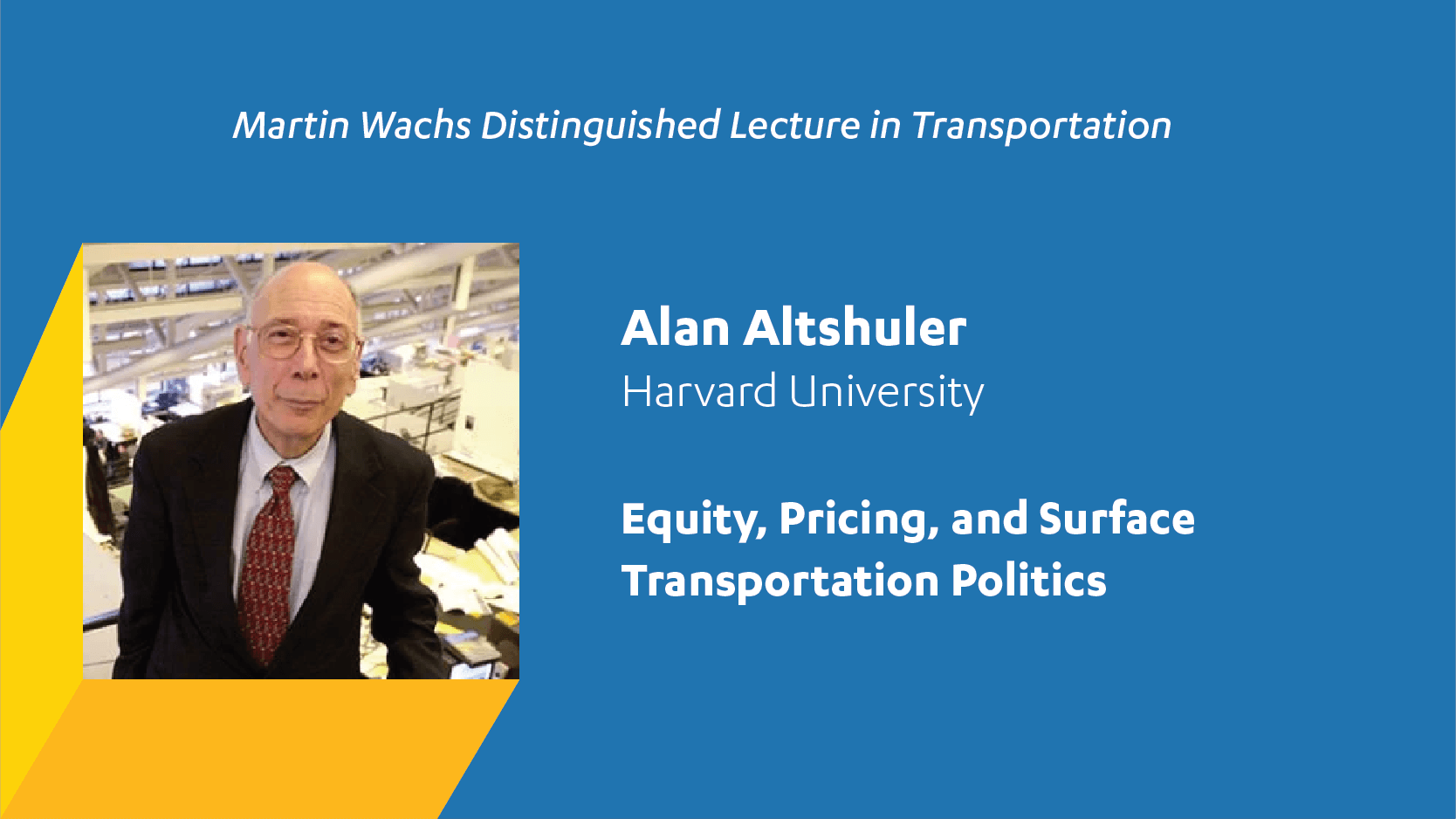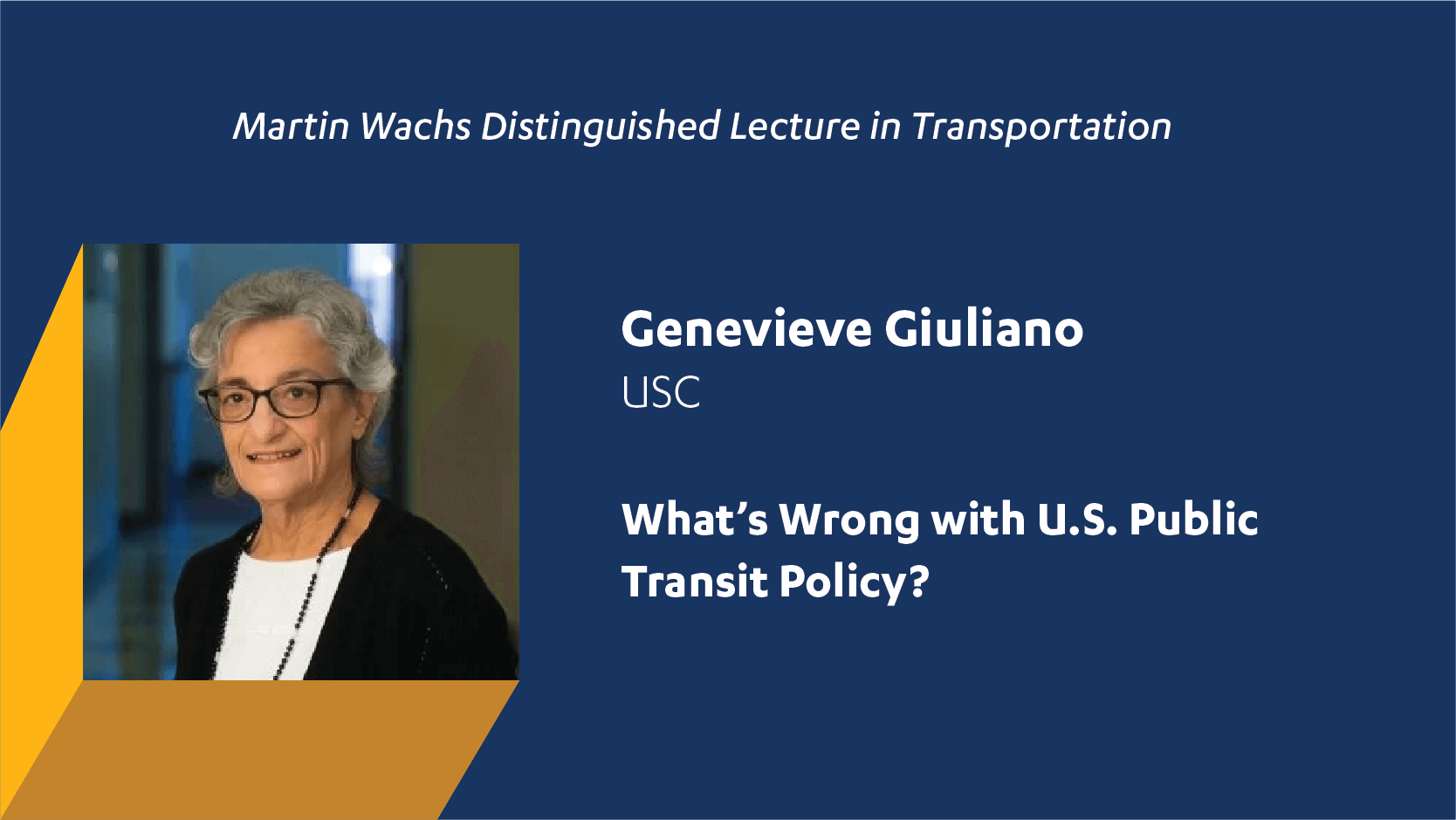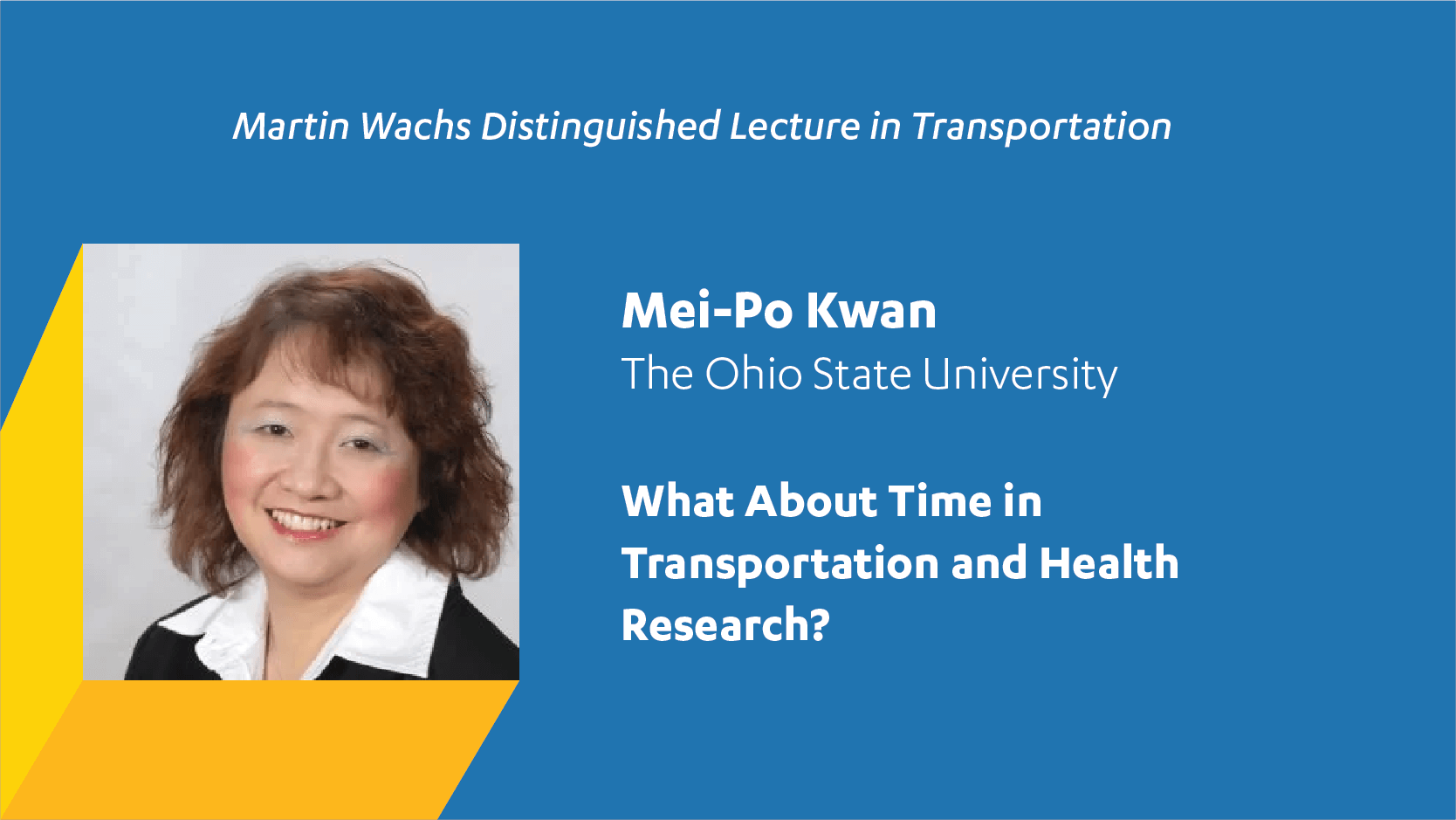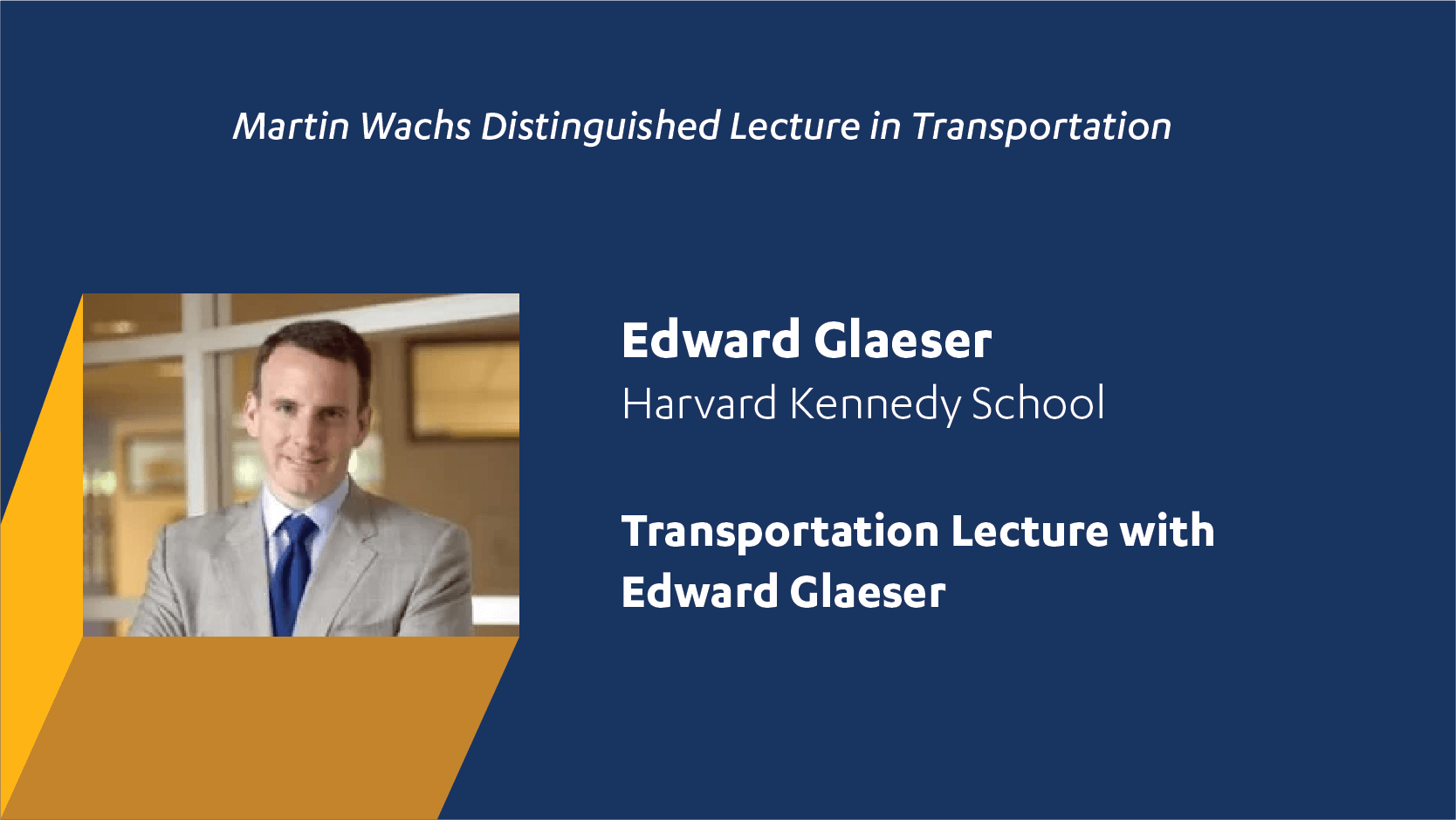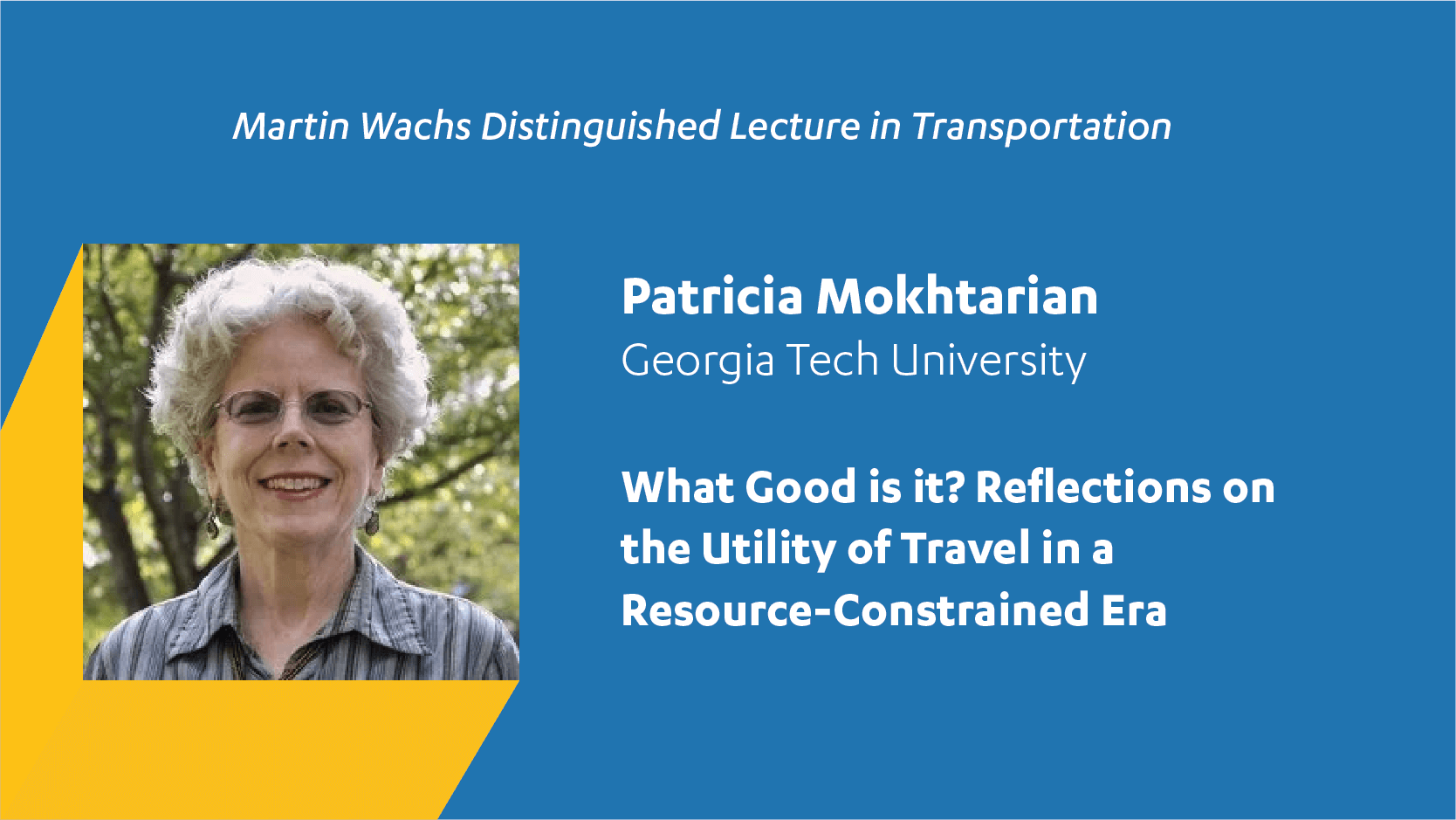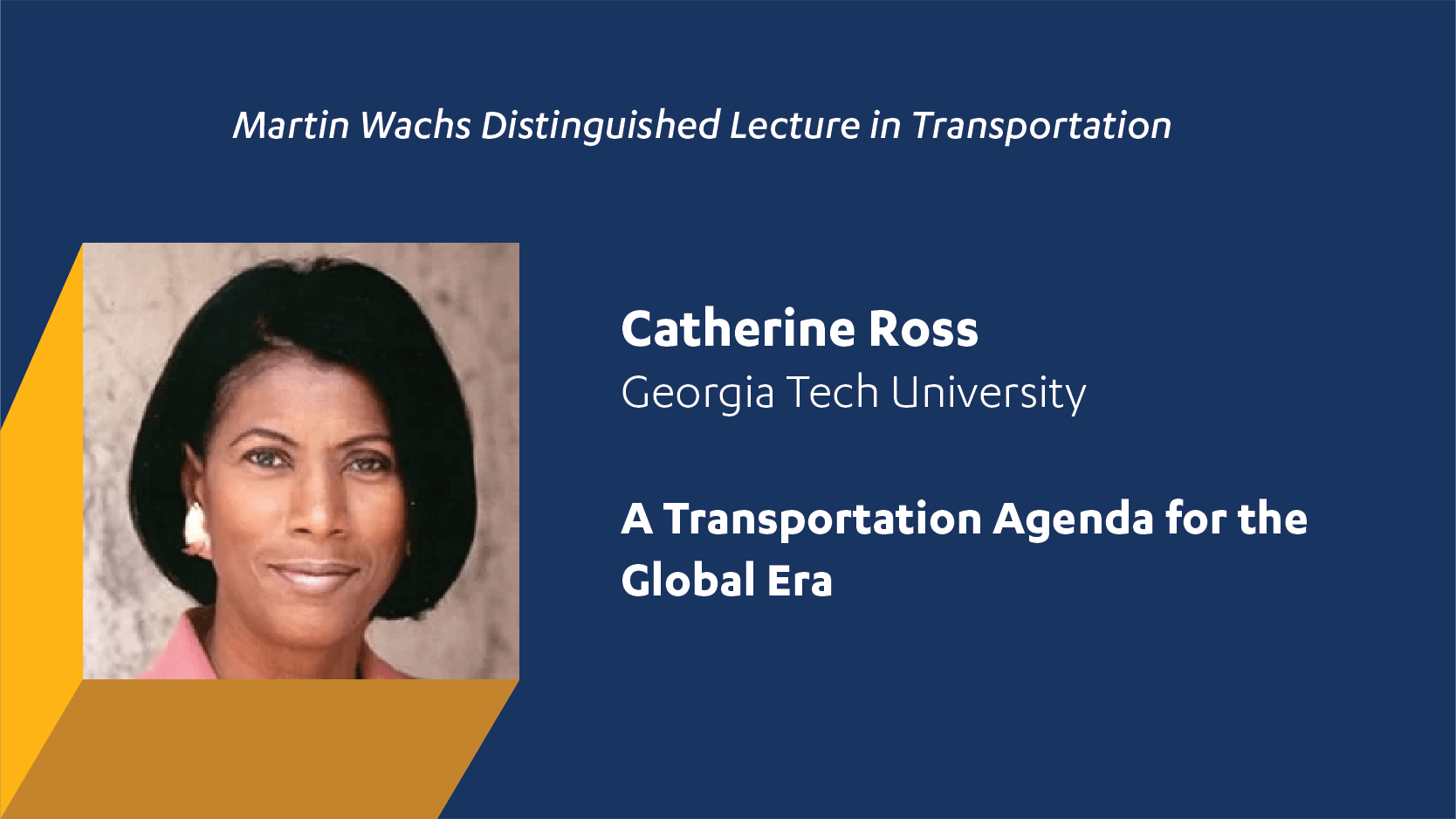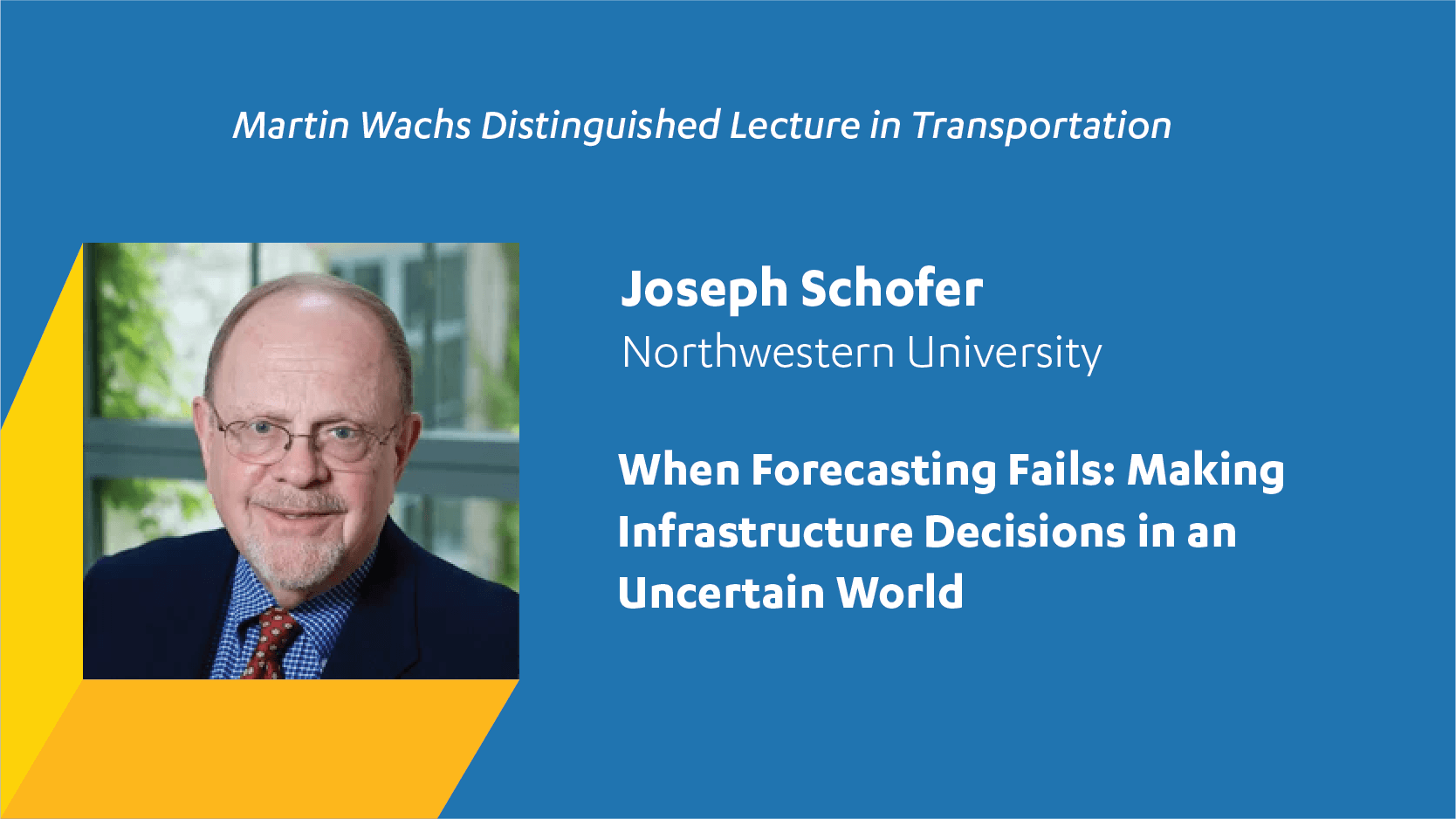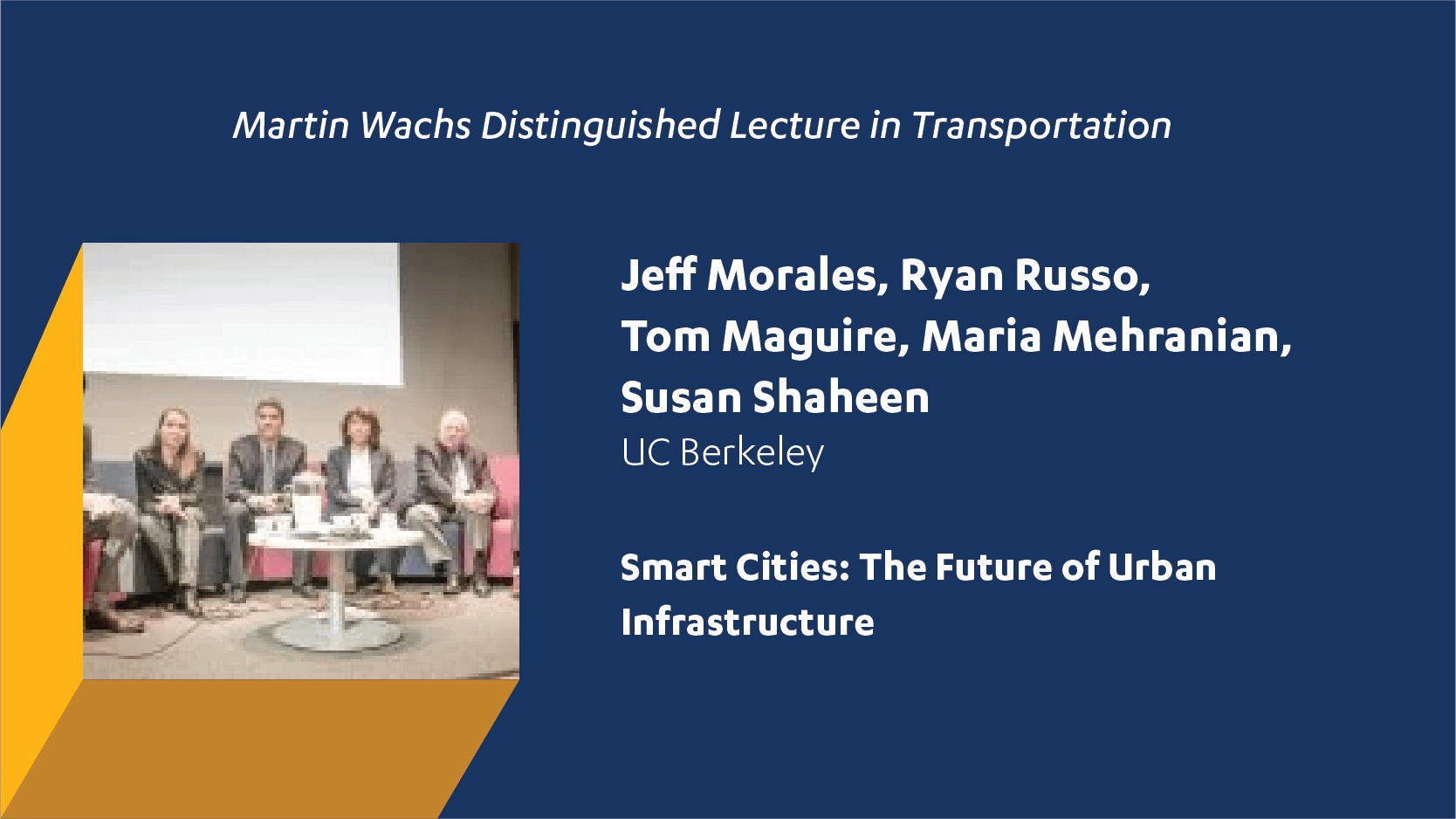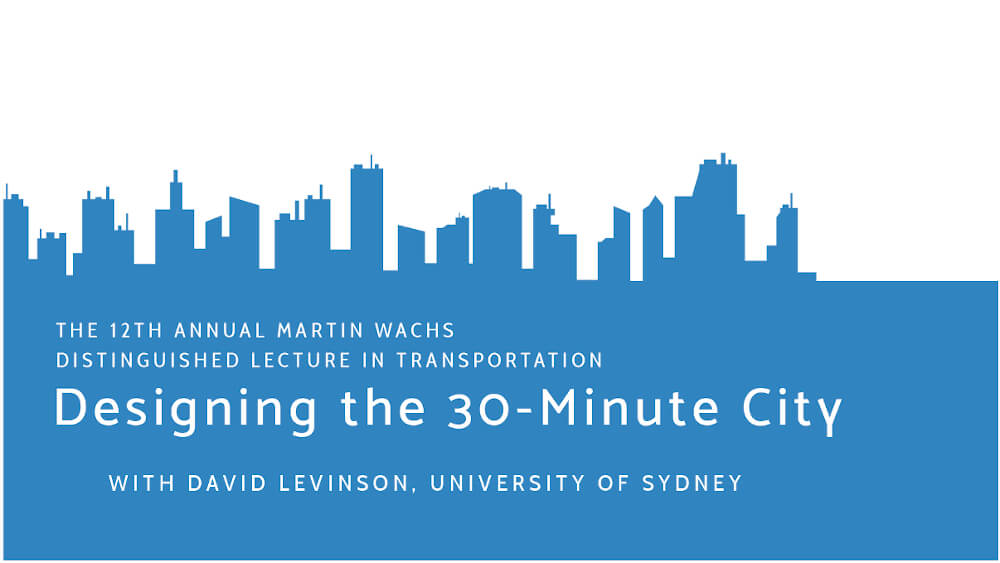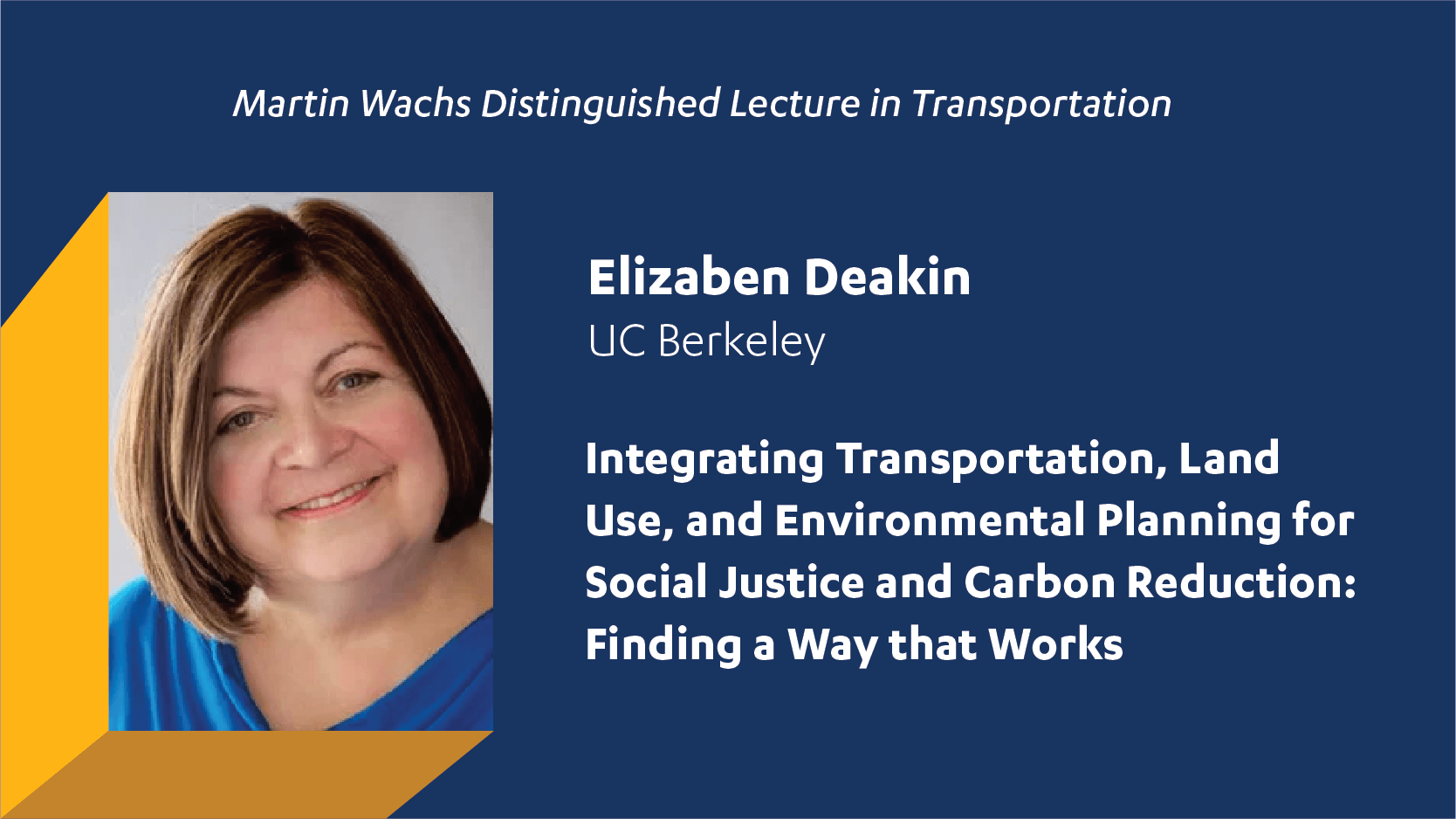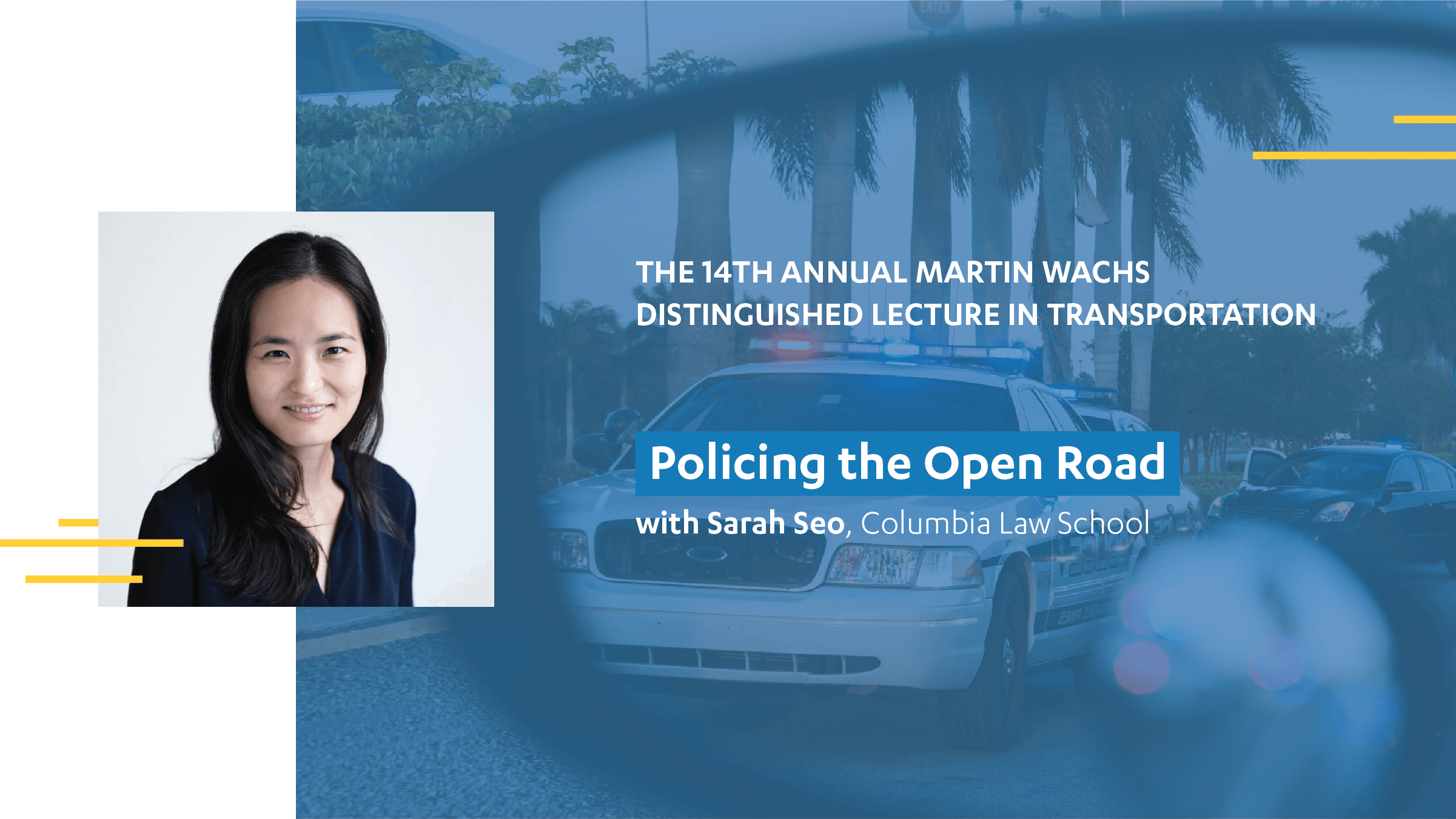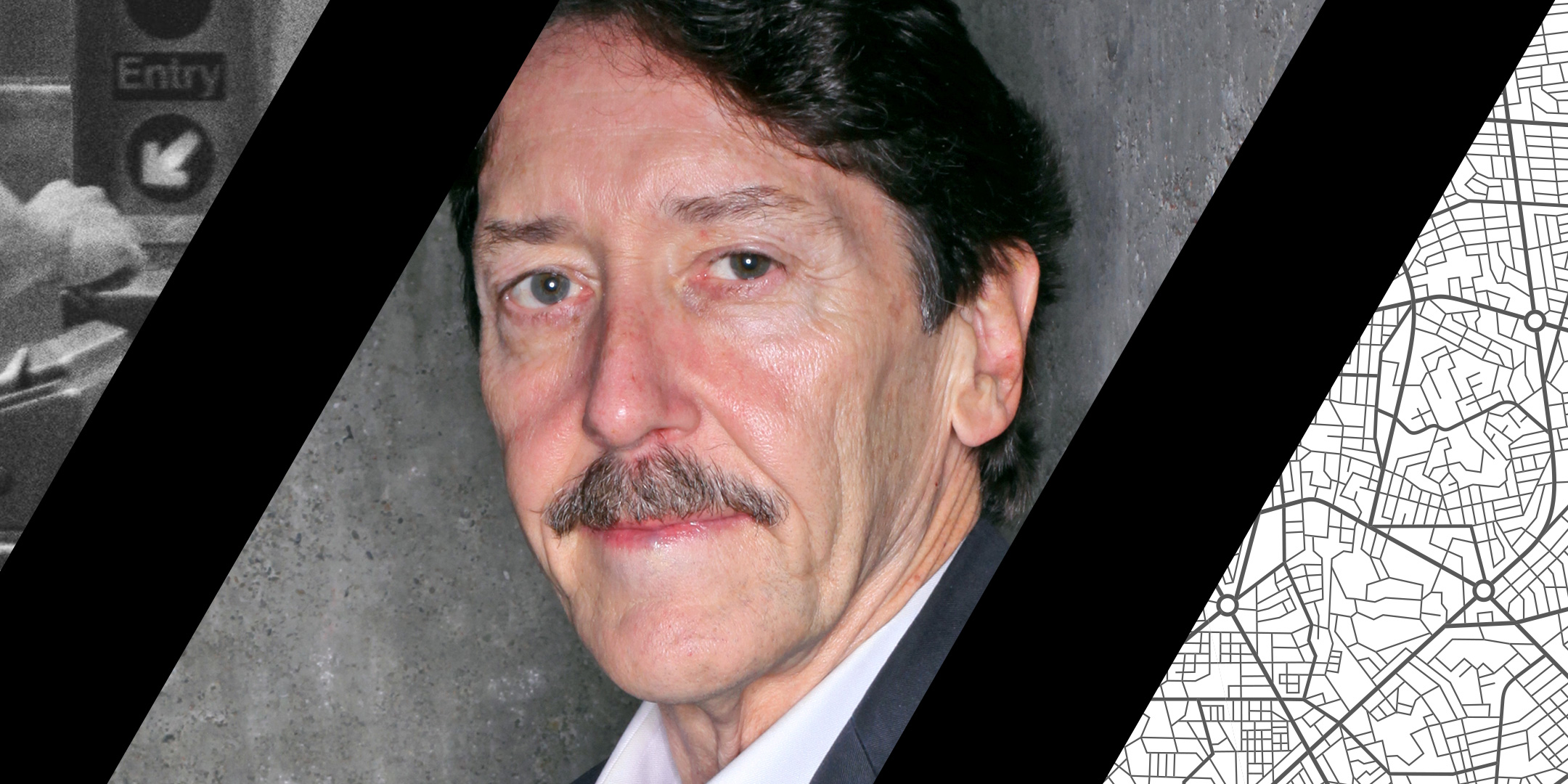Part of the Martin Wachs Distinguished Lecture Series and Meyer and Renee Luskin Lecture Series. Robert Cervero works in the area of sustainable transportation policy and planning. He has consulted on numerous transportation and urban planning projects worldwide, most recently advising long-range planning in Dubai and Singapore. His most recent book, Beyond Mobility, won the 2019 National Urban Design Best Book Award. Dr. Cervero was a member of Berkeley’s city and regional planning faculty from 1980 to 2016, where he twice served as Department Chair, was the inaugural holder of the Carmel P. Friesen Chair in Urban Studies, and directed both the University of California Transportation Center and the Institute of Urban and Regional Development. More recently he has held visiting faculty appointments at Tongji University in Shanghai and NYU-Abu Dhabi. During his doctoral studies in urban planning at UCLA, he worked under the supervision of his long-time mentor, Martin Wachs. Martin Wachs’ seminal 1973 paper on accessibility as a social construct continues to influence urban planning policy and practice a half-century later. It also shaped a generation of research on, broadly speaking, the ‘transport-land use connection’, including my own. This talk probes a number of policy initiatives that implicitly [...]


